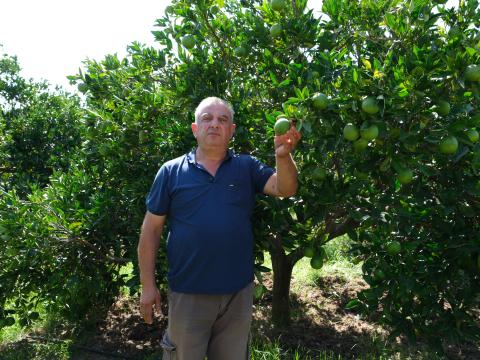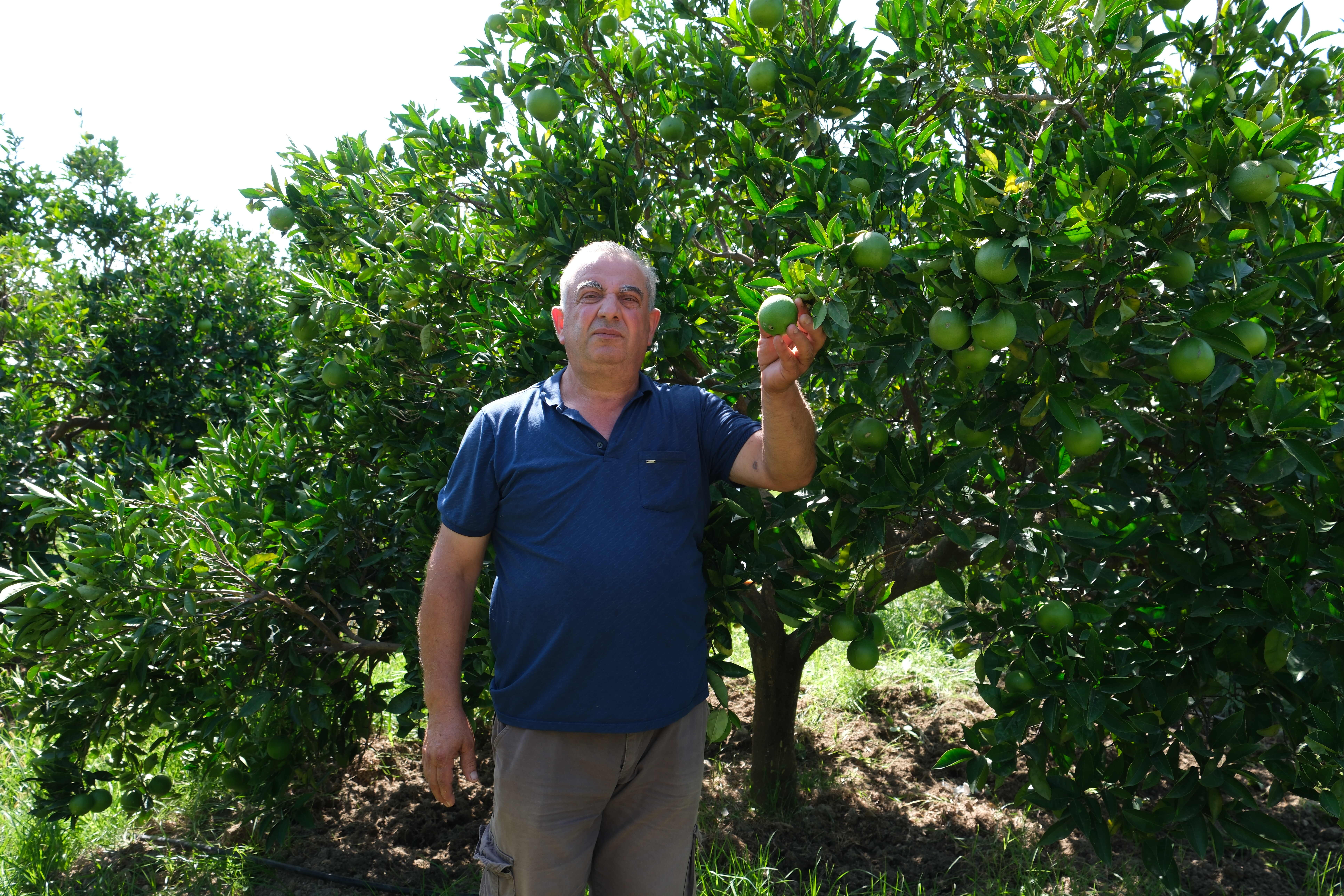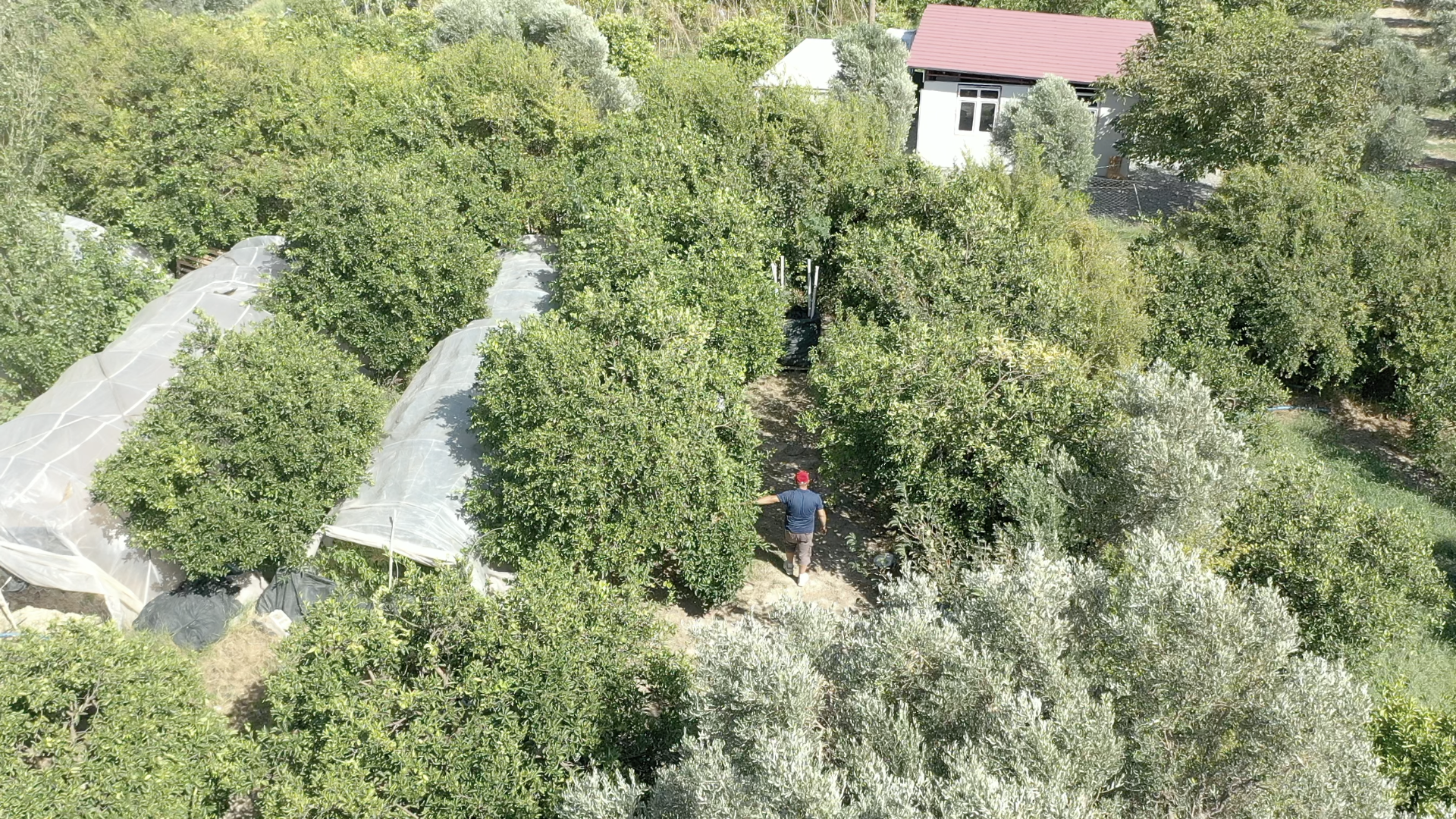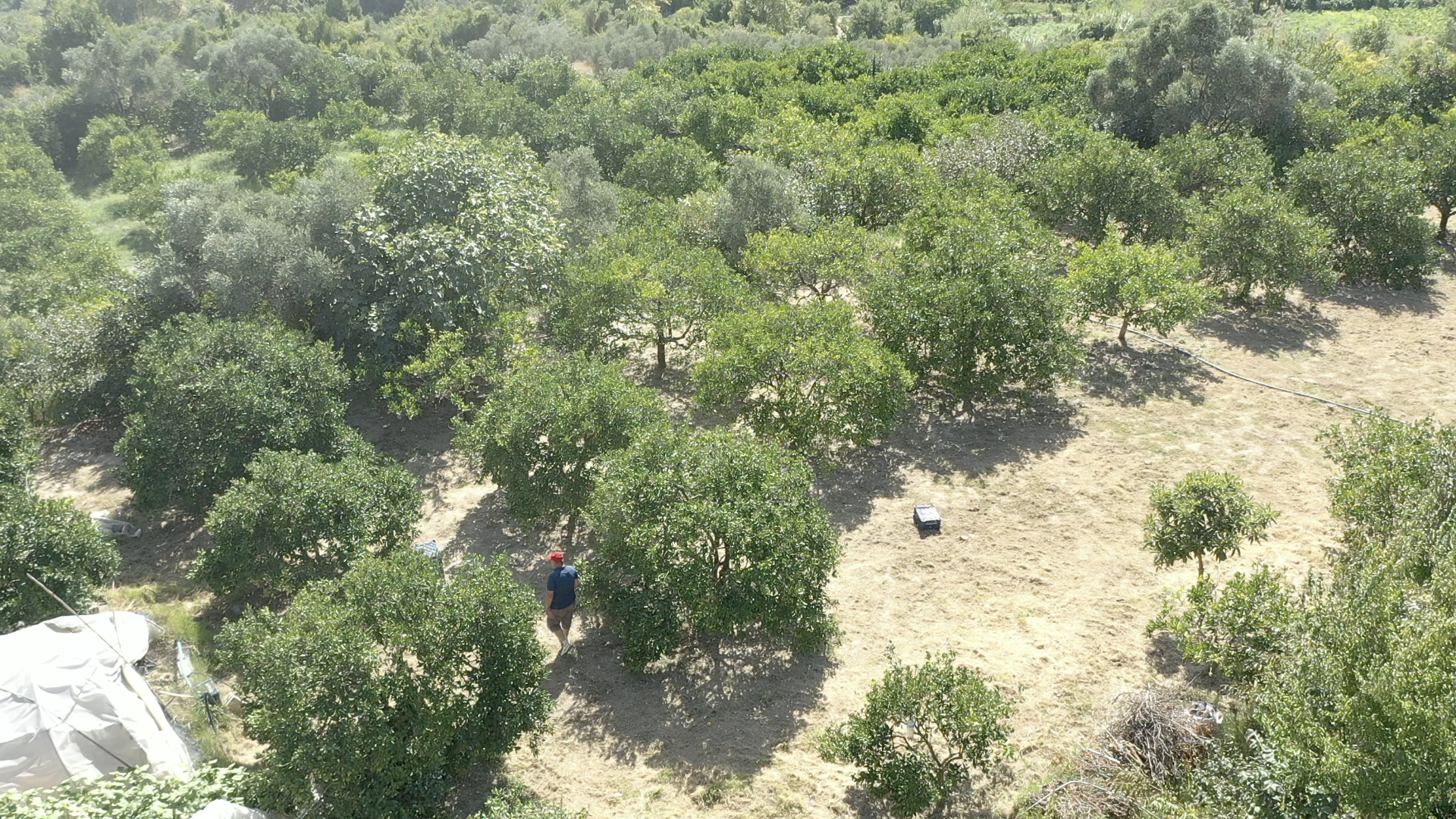Rebuilding one seed at a time

Rebuilding one seed at a time
In 2023, a massive earthquake shattered lives across Türkiye and Syria, leaving indelible scars on countless communities. In Hatay, Türkiye, the tragedy was especially profound. The land once known for its beauty and productivity lay in ruins, and people like Orhan* were left with little more than memories of the life they once knew. “I don’t call it an earthquake; it was a disaster,” Orhan recalls, eyes reflecting the weight of loss.
For Orhan, a local farmer with deep roots in Hatay’s fertile soil, his connection to the land goes beyond livelihood. His orchards are more than a source of income—they’re a family legacy, a symbol of heritage, and a beacon of the future. “This land has nurtured my family for generations,” he says. When the earthquake struck, Orhan and his family fled their home for safety. Looking back at his land torn apart, Orhan’s heart broke as he witnessed the devastation. “The land cried out in pain, and we felt powerless,” he shares.
When the tremors finally stopped, he took in the ruins of his home and the rotting fruits that once symbolised hope and resilience. With no other option, Orhan and his family found refuge in their greenhouse, transforming it into a shelter during those uncertain days.

In response to the disaster, World Vision Syria Response, with support from the World Food Programme (WFP), launched a series of targeted projects across Hatay. In partnership with the International Blue Crescent Foundation (IBC), these initiatives provided agricultural training and essential tools to help farmers like Orhan rebuild their livelihoods. Beyond immediate relief, the project focused on sustainable practices to promote long-term community resilience and strength.
For Orhan, the programme offered a lifeline when he needed it most. He discovered the training while searching online for pesticides—a chance encounter that would transform his approach to farming. “I went to the training, thinking I needed chemicals to save my orchards,” Orhan remembers. “But I realised I didn’t need those at all. I learned how to work in harmony with nature.” Through the training, Orhan mastered the skills to create natural pesticides and compost, breathing life back into his orchards without relying on harmful chemicals. This shift marked a new beginning: from struggling to survive to rebuilding with resilience and sustainability in mind.
Orhan’s journey from survival to sustainability quickly spread throughout his community. He began sharing his homemade natural pesticides with neighbours, offering the first batch for free so they could see the benefits firsthand. “Once they see how well it works, they want to continue using it,” he says. In a community where chemical pesticides were once the norm, Orhan’s generosity and dedication to sustainable practices became a source of inspiration, sparking a ripple effect that extended across Hatay’s farming community.
The project also provides critical equipment to help farmers enhance their productivity while staying true to sustainable practices. For Orhan, this support includes pheromone traps to control pests, a motorised scythe for weed management, a sprayer for organic treatments, and a drip irrigation system for efficient water use. With this equipment, Orhan dreams of nurturing his orchards sustainably, allowing him to not only increase his yields but also preserve the land he loves.

Through these efforts, the programme has reached 100 farmers, each equipped with the training and tools needed to rebuild their livelihoods. World Vision and WFP, alongside local partners, have created a framework where farmers are empowered to restore their lands and build a foundation for long-term agricultural resilience.
Orhan’s story stands as a powerful testament to the resilience and impact of sustainable practices. “This training wasn’t just about farming techniques,” Orhan explains. “It taught me how to live in harmony with nature. Now, I can pass this knowledge on to future generations, and that is the greatest legacy I can leave behind.” His commitment to his land and community symbolises the project’s larger mission: to help people not only survive but also thrive by equipping them with skills that endure.
In Hatay, farmers like Orhan are rebuilding, one seed at a time, each rooted in resilience, sustainability, and hope. Through their dedication, they are planting the seeds of a brighter future—one that grows stronger with the support of World Vision, WFP, and the power of community-driven change.

*Name is changed to protect identity.